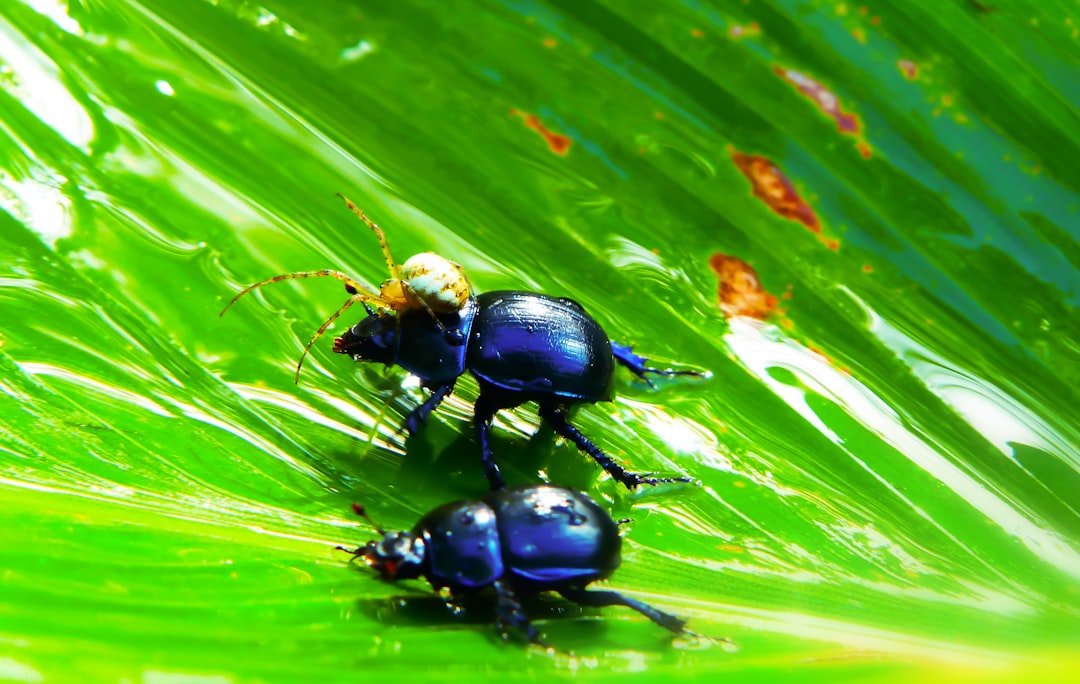The Secret Weapon for Rose Protection

In the world of gardening, roses are often considered the queens of the flower kingdom. Their beauty, fragrance, and elegance have captivated gardeners for centuries. However, these delicate blossoms are also prone to a variety of pests and problems that can quickly turn a once - thriving rose bush into a sad, wilted mess. But fear not, as I've discovered an unexpected combination that has proven to be a game - changer in protecting my roses.
When I first started my rose garden, I was faced with the same common issues that many gardeners encounter. Aphids would swarm the tender new growth, sucking the life out of the leaves and buds. Black spot, a fungal disease, would mar the once - pristine foliage, causing it to turn yellow and drop prematurely. And Japanese beetles would feast on the petals, leaving behind a ragged and unappealing sight.
I tried all the traditional methods of pest control. I sprayed insecticides, which often killed not only the pests but also the beneficial insects that help keep the garden in balance. I used fungicides to combat the black spot, but sometimes they were ineffective, and I worried about the long - term effects of these chemicals on the environment and my health.
Then, one day, I stumbled upon an unlikely combination. It was a mix of ingredients that I had never thought to use together in the context of rose protection. The first component was garlic. Garlic has long been known for its natural insect - repellent properties. It contains sulfur compounds that are unappealing to many pests. I crushed a few cloves of garlic and steeped them in water overnight. The next day, I strained the liquid and put it in a spray bottle.
The second ingredient was cinnamon. Cinnamon is not only a delicious spice but also has antifungal properties. It can help prevent the growth of black spot and other fungal diseases on the roses. I mixed a small amount of ground cinnamon into the garlic water solution. The smell was a bit pungent, but I was willing to overlook that if it meant saving my roses.
I also added a splash of dish soap to the mixture. The dish soap helps the solution adhere to the leaves and petals of the roses. It acts as a surfactant, allowing the garlic and cinnamon to spread evenly and stick to the plant surfaces.
Once I had my concoction ready, I started spraying my roses. I made sure to cover both the tops and bottoms of the leaves, as well as the stems and buds. At first, I was skeptical. The combination seemed too simple to be effective. But within a few days, I started to notice a difference.
The aphids that had been infesting my roses began to disappear. The black spot on the leaves stopped spreading, and some of the existing spots even started to fade. The Japanese beetles seemed to avoid my roses altogether. I was amazed at how well this unexpected combination was working.
Over time, I continued to use this natural pest - control solution on my roses. I sprayed it every couple of weeks, especially during the peak pest and disease seasons. My roses have never looked better. They are now healthy, vibrant, and free from the pests and diseases that once plagued them.
Not only is this method effective, but it's also environmentally friendly. I don't have to worry about the harmful effects of chemicals on the soil, water, and wildlife in my garden. It's a win - win situation for both my roses and the environment.
If you're a rose gardener struggling with pests and problems, I encourage you to give this unexpected combination a try. It might just become your secret weapon for rose protection, just like it has for me. You'll be able to enjoy the beauty of your roses without having to deal with the constant battle against pests and diseases.
So, go ahead and gather your garlic, cinnamon, and dish soap. Whip up a batch of this natural pest - control solution, and watch as your roses thrive. Your garden will thank you, and you'll be able to sit back and enjoy the sight of your healthy, beautiful roses for years to come.